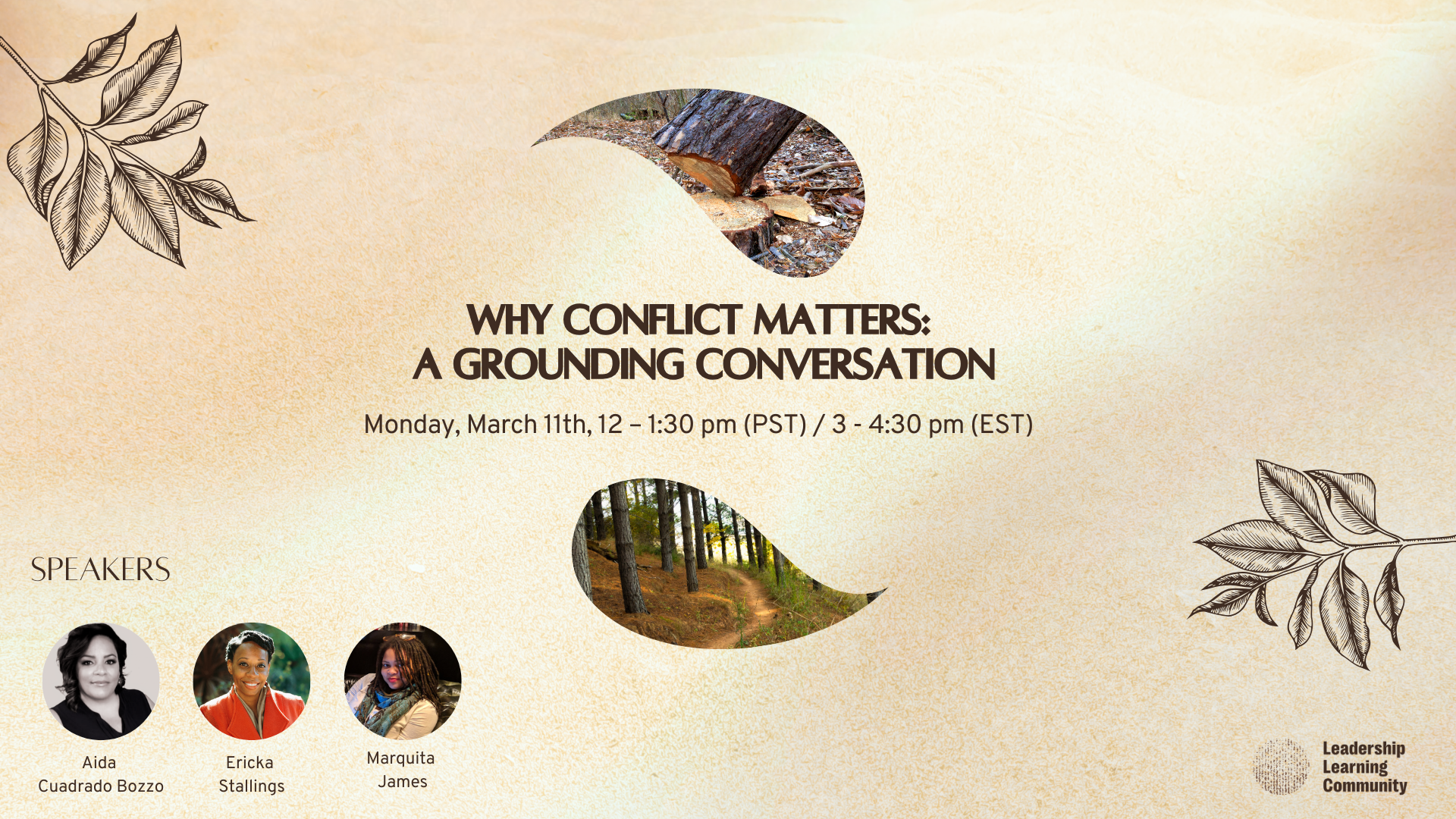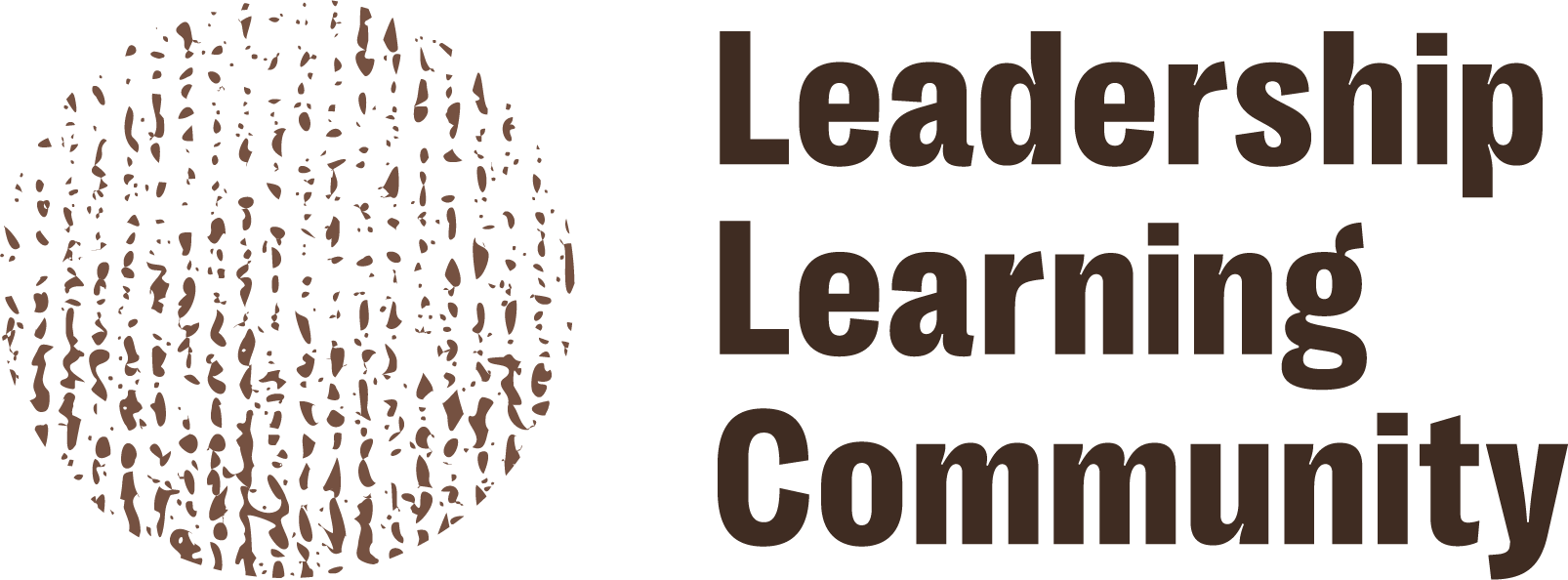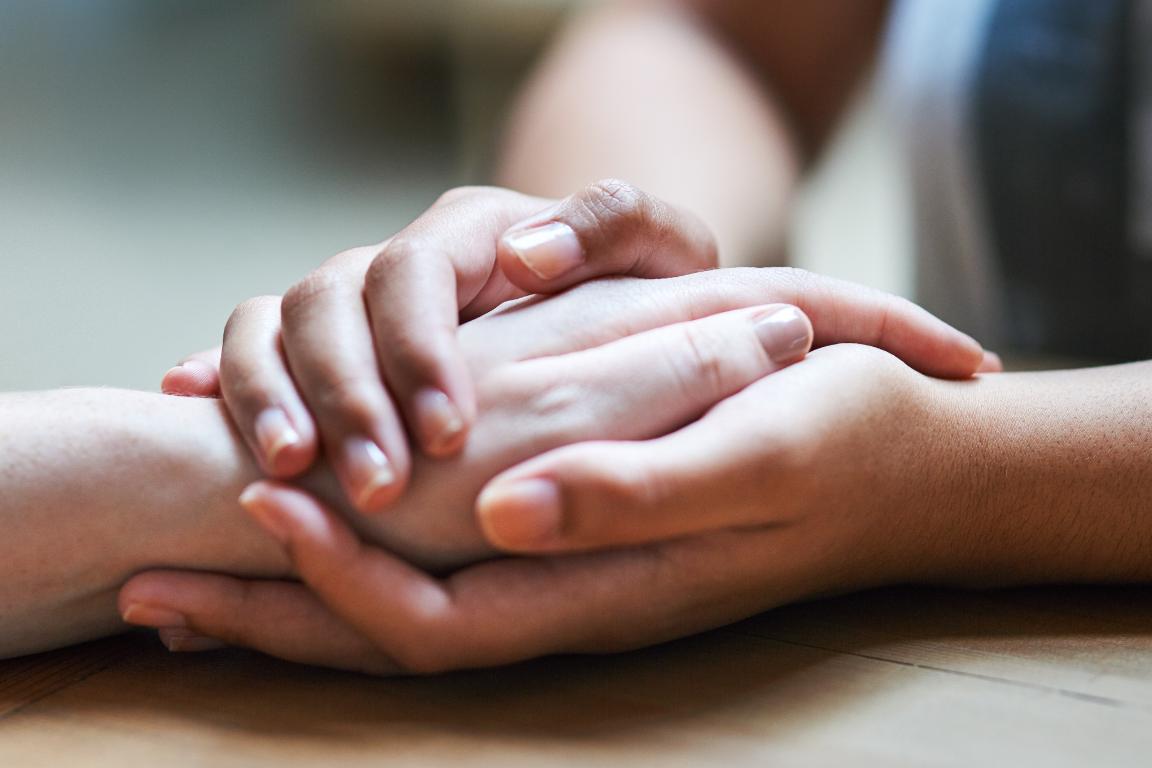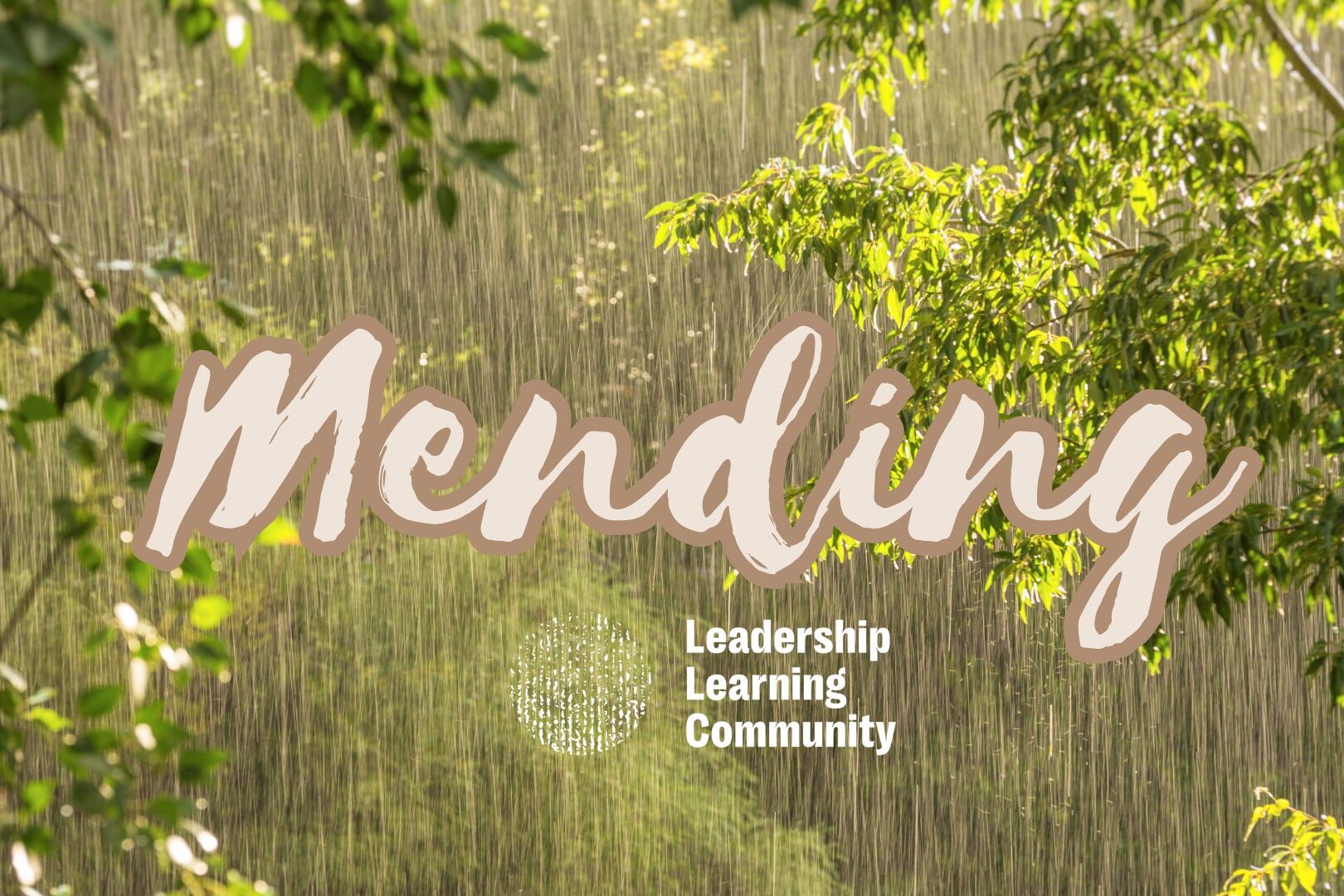
On Monday, March 11, the Leadership Learning Community launched the first session of the Mending Series: Why does conflict matter: A grounding conversation. We had a wonderful session that explored the complexity of conflict and generative transformation within movement work. Aida Cuadrado Bozzo and Marquita James guided us through a conversation about the transformative possibility of conflict resolution and liberation. Inspired by the ethos of visible mending arts like Kintsugi, we explored conflict as a pathway to growth and connection, embracing imperfection and incompleteness as catalysts for transformation. As we discussed, conflict is not to be feared but embraced as a portal to deeper understanding and alignment. Through self-awareness, empathy, and embodied practices, we can navigate conflict with grace and resilience, turning moments of tension into opportunities for learning and growth. As we continue this journey together, let us hold space for authenticity, curiosity, love, fear, and respect, guided by our want/need for collective liberation. Check out the rest of our Mending series here.
What people said:
“I didn’t know how much I needed to be in this space and to hear these thoughts. Excited to build here. ♥️” – Darius.
“There is so much richness in this space, deep gratitude to LLC for offering such a thoughtful series and the offerings of all the community. I always love attending your offerings 🙏🏻”- Mary.
“I’m so excited about the rest of the series and so grateful for today’s conversation!”-Samantha.
“This time together was amazing. I appreciate the thoughtful insights and resources. Thank you!”- Cherice
“I appreciated the exploration of conflict and generative conflict. The prompts for the small group discussions were thought-provoking. Thank you!”- Monika.
Who:
The LLC was joined by our amazing community, Aida Cuadarado Bozzo and Marquita James, two people who usher people through conflict and help them develop the skills to engage with conflict in generative and liberatory ways.
- Marquita James‘s work as a conflict transformation consultant and coach is animated by her passion for empowering people to be agents of their own change. Her consulting practice ranges from helping organizations design healthier dispute-resolution systems to helping individuals navigate murky situations. Marquita provides impact-driven, equity-immersed consulting services using innovative solutions to help social change organizations transform the world. Her work centers on the growth, learning, and development of organizations and the individuals within them. Marquita delights in helping organizations embrace healthy, sustainable approaches to conflict transformation, strategy, organizational change, leadership development, and deep exploration of “why are we here doing this thing in this place at this time?” She has facilitated difficult conversations and provided training and coaching since her time with the Harvard Mediation Program at Harvard Law School. When Marquita is not elbows deep in the consulting and coaching worlds, you’ll find her hunting for live music, attempting to dance bhangra, or pining for gumbo from her home state.
- Aida Cuadrado Bozzo, based in Lansing, MI, by way of Puerto Rico, is a queer Taina/Boricua, a cultural, transformational organizer, facilitator and trainer. For over 15 years, she has worked for social justice across a spectrum of cultures, communities, movements, and sectors. She specializes in designing and implementing leadership development and capacity-building initiatives in organizing, strategy, leadership development, generative conflict communications, racial equity, and innovative program and curriculum designs to serve local, regional, and national organizations, networks, and campaigns. Aida is an auntie, middle child, amiga, and partner.
Why “Mending?”:
We were inspired by visible mending arts, such as Kintsugi, the art of repairing pottery with gold. The practice embraces imperfection, impermanence, and incompleteness in a way we find liberatory. We saw this approach to repairing breaks without hiding them as a different way to think about conflict, to normalize it and not just skip to repair or to a repair that obscures conflict like it’s a dirty secret.
Why Conflict Matters:
We are talking about conflict in the context of liberatory leadership because, over and over, we’ve heard from leaders that this is one of the hardest parts of the work. Conflict is an inevitable part of authentic relationships. While it often feels difficult at the time, relationships that go through conflict and reach the other side can be strengthened. By learning to go through conflict while treating ourselves, our partners, and our communities with care, we can turn conflict into opportunities for learning, deeper relationships, stronger values alignment, and transformation. Conflict can also be a “portal” to something new.
- “[On conflict] It will happen if we’re lucky it happens. If it doesn’t, you have yourself a problem.” – Marquita James.
- “The first step that I take people through and get really clear on is, [to name] for yourself: “What are your values? How do you wanna be in conflict? And what is your commitment?'” – Aida Cuadrado Bozzo.
- “[On conflict] as one of the medicines, we can learn how to create to get us where liberation is calling us to go”—Aida Cuadrado Bozzo.
Highlights of Learnings and Discussions from Session #1:
- It all starts with awareness and self-reflection:
“It all starts with our ability to surface where we are, how we are, and what our needs are. We need to cultivate the self-awareness that will then enable us to move through conflict more generatively”—Marquita James.
- Generative conflict allows us to prevent division and power imbalances while teaching us how to foster empathy and inclusivity.
“Conflict is a full-body response to something that’s not in alignment with you, another person, thing, or situation. Generative conflict for me is that whatever is on the other side is often far more valuable than what I’m feeling right now. So generative as in creating tension to arrive somewhere else that hopefully is a good place.” – Aida Cuadrado Bozzo.
- Our engagement with conflict is a collective process, emerging in and from our communities and families. The group enthusiastically shared that the significance of birth order was relatable (Any older siblings or younger siblings in here? Oops, forgot you middle ones), and there is indeed more behind it. The generational and lineage components of conflict, such as what conflicts the many generations before you had to work through, are also part of the familial conflict story we must examine. Marquita reminded the group that for some of our ancestors, dealing with conflict could cause life-or-death consequences, not merely dis-ease.
“We want to invite you to take it a couple of steps beyond just your family of origin. So, where did they learn how to maneuver through conflict? And the generation before them, and that’s when we really start getting into liberatory work around generative conflict.”—Marquita James.
- Embodied conflict transformation: Marquita discussed how, for many years, discussions about conflict have revolved around talk and communication—how do we articulate our message? And although talk is important, it is insufficient.
“Tending to conflict requires deep embodied awareness and movement… The body keeps the score when we have conflict, and part of the mending process, when done well, is also tending to what the body is holding and how these bodies that have experienced rift can be woven back together.” Marquita James.
- We need to think, talk, and learn about conflict because avoiding conflict or engaging in non-generative ways has serious consequences for us as individuals and collectives. Aida encourages us to find ways to disrupt some of the disorganizations that happen when we experience conflict. One exercise is to write a purpose statement or commitment for yourself, what you want for yourself, or how you want to be in moments of conflict and grief. Then, pull that out when conflict arises and acknowledge how you’re responding. Keep in mind your purpose statement (how you want to be when conflict arises); use this as a guiding light.
“Any moment that you feel deep grief around conflict invite others to help you disrupt it. Let’s disrupt this disorganization.” – Aida Cuadrado Bozzo.
“We have to get rid of our fear of conflict… We are so fearful of being in a space where folks look at us in a negative light, so we over-perform kindness and over-perform politeness, and when like that sh*t becomes passive-aggressive, and now we have even more deeper conflict.” – Darius.
“We have to learn to accept imperfection: “I accept that I can be messy and dope at the same time.” This felt like the time to share that!” – Melissa.
- As organizations, networks, and community spaces, we need to have conversations about what we mean by bringing your authentic self vs. your whole self into spaces, what we do when people bring it, and how we hold people. Liberation is an invitation to wholeness. How can we learn to navigate conflict so that people are not asked to leave parts of themselves behind?
“I want us to stop telling people to bring their whole selves to work without being honest about what parts of them we can handle. It’s creating a lot of unnecessary conflict.” – Kelli.
- By getting explicit with expectations, we can have a more open pathway to discuss conflicts. An example of this is setting group agreements. This is an example of LLC’s conscious agreements for this session.
-
- Embrace partially formed thoughts – raggedy thinking.
- Treat yourself and others with care
- Be present
- Listen and respect each other
- Take space, make space
- Use a learning mindset
- Assume nothing and ask questions
- Remember the principle of gratitude and experience joy
- Expect unfinished business: sometimes you have to sit with things
However, we must also be careful with how we use agreements, as they can be conflict avoidance tools rather than conflict navigation or transformation tools if we aren’t careful.
“This is making me think about the intentionality that is required to set community norms so they aren’t used to avoid conflict.” – Kelli.
Tips & Resources From Speakers, LLC, and Participants:
-
- Breath by Mapumba
- Cultivate the self-awareness needed to navigate through conflict – Marquita.
- Emotion Wheel by Abby Vanmuijen: The wheel of emotions invites you to tend to your body and the needs that your body might be indicating, even if you don’t have the language for it.
- Jordan, I’m giving myself the homework to go look at some theater of the oppressed games/activities that might help with embodiment.
- Kai Cheng Thom’s “So you’re ready to choose love” workbook helps us explore how we want to show up in conflict.
- My Grandmother’s Hands by Resmaa Menakem
- Necessary Endings by Dr. Henry Cloud
- Switch: How to Change Things When Change Is Hard By Dan & Chip Heath
- Think about “what brings me to be in a relationship with this person” when a conflict arises.
- The Body Keeps the Score by Bessel van der Kolk
- To avoid the fear of conflict, remind yourself of times when conflict has been generative.
- The Difference Between Being Nice and Being Kind: Akaya Windwood and Kevin John Fong
Related Posts
September 30, 2024
The Healing Rhythm of Running
September 30, 2024



